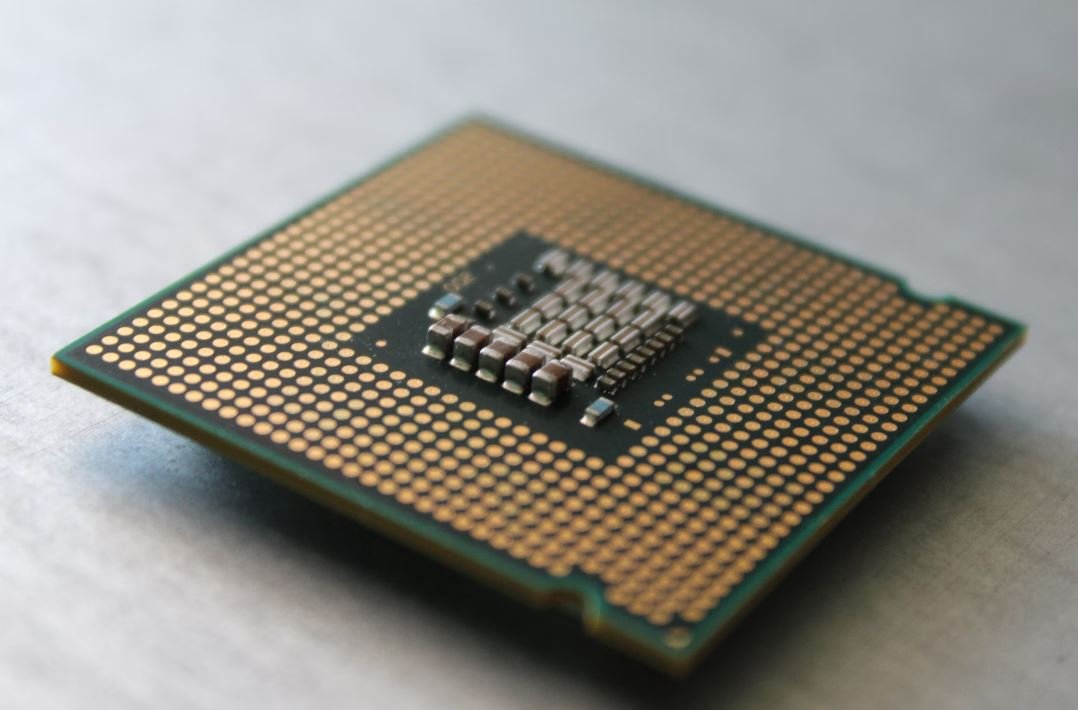Who Is a Production Engineer?
A production engineer plays a crucial role in manufacturing and production processes. They are responsible for ensuring efficient operation, maximizing output, and optimizing the utilization of resources in order to meet production targets.
Key Takeaways:
- A production engineer is responsible for overseeing manufacturing and production processes.
- Their main role is to optimize production systems and ensure smooth operations.
- They collaborate with cross-functional teams and use technical expertise to improve productivity and quality.
In today’s highly competitive industrial landscape, production engineers play a vital role in the success of any manufacturing facility. They bring together their engineering knowledge, analytical skills, and problem-solving abilities to streamline production processes and drive operational excellence.
Responsibilities of a Production Engineer
Production engineers have a range of responsibilities that vary depending on the industry and organization they work for. Some of their key responsibilities include:
- Identifying areas for process improvement and implementing strategies to enhance productivity.
- Collaborating with design, operations, and quality control teams to ensure products meet the required specifications.
- Developing and implementing production schedules and adjusting them as necessary to meet changing demands.
One interesting aspect of the role is that production engineers need to possess not only technical skills but also strong interpersonal and communication skills. They often find themselves liaising with different teams and stakeholders, including managers, technicians, and suppliers, to ensure smooth operations and troubleshoot any issues that arise.
Qualifications and Skills
To become a production engineer, it is typically necessary to have a bachelor’s degree in engineering or a related field. Some organizations may also require additional certifications or specialized training in specific manufacturing processes or technologies.
In addition to the educational qualifications, production engineers must possess a range of skills to excel in their roles. Some of the key skills include:
- Technical knowledge: Proficiency in engineering principles and manufacturing processes is crucial to identifying areas for improvement and implementing solutions.
- Analytical skills: The ability to analyze data, identify trends, and make data-driven decisions is essential for optimizing production systems.
- Problem-solving: Production engineers must be adept at identifying issues and finding practical solutions to ensure uninterrupted production.
- Communication: Effective communication skills are necessary for collaborating with cross-functional teams and stakeholders.
Salary and Job Outlook
Production engineers enjoy competitive salaries due to the critical nature of their roles. According to data from the Bureau of Labor Statistics, the median annual wage for industrial engineers, which includes production engineers, was $87,040 as of May 2020.
As for the job outlook, the field of production engineering is expected to experience stable growth in the coming years. The demand for skilled production engineers is driven by the need for process optimization, cost reduction, and increased productivity in various industries.
| Industry | Employment Percentage |
|---|---|
| Manufacturing | 29% |
| Professional, Scientific, and Technical Services | 17% |
| Transportation Equipment Manufacturing | 11% |
| Industry | Annual Mean Wage (May 2020) |
|---|---|
| Aerospace Product and Parts Manufacturing | $119,650 |
| Navigational, Measuring, Electromedical, and Control Instruments Manufacturing | $116,020 |
| Electric Power Generation, Transmission, and Distribution | $115,810 |
| State | Employment Level |
|---|---|
| Michigan | 48,450 |
| California | 32,060 |
| Texas | 27,840 |
In conclusion, production engineers are vital contributors to the manufacturing sector, leveraging their technical knowledge and problem-solving skills to optimize production processes. With a strong job outlook and competitive salary potential, pursuing a career as a production engineer can offer numerous opportunities for growth and professional development.

Common Misconceptions
Production Engineer is a blue-collar job
One common misconception about production engineers is that they are primarily involved in manual labor and perform blue-collar tasks. While it is true that production engineers can sometimes work in a hands-on capacity, their role goes beyond physical labor. They are responsible for optimizing production processes, utilizing technology to streamline operations, and ensuring that manufacturing goals are met efficiently.
- Production engineers use data analytics and computer software programs to analyze production data.
- They strategize and implement continuous improvement initiatives to increase productivity and decrease production costs.
- They collaborate with other departments to ensure product quality and troubleshoot any production issues.
Production engineers are only responsible for production line
Another misconception is that production engineers only focus on the production line and have no other responsibilities within the company. In reality, production engineers play a crucial role in various aspects of the manufacturing process and beyond.
- They participate in product design and development, providing valuable insights to improve manufacturability and efficiency.
- Production engineers work closely with supply chain management to ensure the timely availability of raw materials and components.
- They collaborate with quality control teams to establish and maintain quality standards throughout the production process.
Production engineers work independently
Contrary to popular belief, production engineers are not lone workers who operate in isolation. Collaboration and teamwork are vital aspects of their job.
- They regularly communicate and coordinate with operators, technicians, and other personnel involved in the production process.
- Production engineers collaborate with cross-functional teams to implement new technologies and improve workflows.
- They work closely with management to determine production goals, develop strategies, and implement process changes.
Production engineers only focus on short-term goals
One misconception is that production engineers solely concentrate on meeting short-term goals, such as achieving daily production targets. However, their responsibilities encompass both short-term objectives and long-term planning.
- Production engineers develop production plans and schedules to meet long-term demand forecasts.
- They analyze production data to identify trends and patterns, helping to improve long-term production efficiency.
- Production engineers contribute to strategic decision-making, such as capacity planning and investment in new equipment.
Production engineers are not technically skilled
It is often mistakenly believed that production engineers do not require strong technical skills and can just rely on management abilities. In reality, production engineers need a strong technical background to understand and optimize complex production processes.
- They possess knowledge of engineering principles, process optimization techniques, and industrial automation systems.
- Production engineers are proficient in using computer-aided design (CAD) and computer-aided manufacturing (CAM) software.
- They stay up to date with advancements in technology and industry trends to implement innovative solutions in the production environment.

What is a Production Engineer
A production engineer is a professional who is involved in the development, design, and implementation of various manufacturing processes. They are responsible for ensuring the efficient and smooth production of goods or services. Here are ten interesting aspects of the role of a production engineer.
Production Engineer Job Responsibilities
This table presents some of the key job responsibilities of a production engineer.
| Responsibility | Description |
|---|---|
| Design and Develop Manufacturing Processes | Create new or improve existing manufacturing processes to increase efficiency and productivity. |
| Optimize Production Systems | Analyze production systems, identify bottlenecks, and implement improvements to maximize output. |
| Ensure Quality Control | Implement quality control procedures to ensure that products meet required standards and specifications. |
| Manage Production Resources | Oversee the allocation and utilization of resources like personnel, equipment, and materials. |
| Resolve Production Issues | Investigate and troubleshoot production problems to maintain smooth operations. |
Types of Production Engineering
There are different types of production engineering. This table highlights three major areas of specialization.
| Specialization | Description |
|---|---|
| Manufacturing Engineering | Focused on improving manufacturing processes, production lines, and operations. |
| Industrial Engineering | Involves optimizing systems, eliminating waste, and improving overall efficiency. |
| Process Engineering | Concentrates on designing and improving specific production processes. |
Required Skills for Production Engineers
Production engineers possess various skills to excel in their role. This table outlines some essential skills.
| Skill | Description |
|---|---|
| Technical Aptitude | Strong understanding of engineering principles and technical expertise in manufacturing processes. |
| Problem-Solving | Ability to identify and address production issues using analytical and innovative thinking. |
| Communication | Excellent communication skills to collaborate with teams, share ideas, and provide instructions. |
| Project Management | Proficiency in managing projects, setting goals, organizing resources, and meeting deadlines. |
Production Engineer Salary
Salary is an important aspect of any profession. This table presents the average salary range for production engineers.
| Experience Level | Salary Range (per annum) |
|---|---|
| Entry-Level | $50,000 – $70,000 |
| Mid-Level | $70,000 – $90,000 |
| Experienced | $90,000 – $120,000 |
Industries Employing Production Engineers
Production engineers find employment in various industries. This table highlights a few industries where their expertise is valued.
| Industry | Description |
|---|---|
| Automotive | Designing and improving manufacturing processes for automobile production. |
| Aerospace | Developing systems and processes for aircraft and spacecraft manufacturing. |
| Pharmaceuticals | Streamlining production operations for pharmaceutical companies. |
Education Requirements
The education required for a production engineer position can vary. This table outlines some common educational pathways.
| Education Level | Degree |
|---|---|
| Bachelor’s Degree | Bachelor of Science in Production Engineering or related field. |
| Master’s Degree | Master of Engineering in Manufacturing Engineering or similar specialization. |
| Doctorate Degree | Ph.D. in Industrial Engineering or a related discipline. |
Future Outlook for Production Engineers
The field of production engineering is evolving rapidly. This table highlights some projections for the future.
| Projection | Description |
|---|---|
| Increasing Demand | Rapid growth in global manufacturing industries will drive the demand for production engineers. |
| Advanced Technologies | Emerging technologies like automation and artificial intelligence will influence production processes. |
| Green Manufacturing | Sustainable manufacturing practices will gain prominence, requiring production engineers’ expertise. |
Conclusion
Production engineers play a vital role in achieving efficient and effective manufacturing processes. They contribute to the development and improvement of production systems across a range of industries. The profession requires a diverse skill set, strong technical expertise, and the ability to solve complex problems. With increasing global demand and advancing technologies, production engineering is poised for continued growth and innovation.
Frequently Asked Questions
What is a Production Engineer?
A Production Engineer is a professional who is responsible for designing and improving manufacturing processes, ensuring efficient production, and optimizing productivity in a production environment. They work to identify and resolve issues, monitor production systems, and implement methods for quality control.
What are the key roles and responsibilities of a Production Engineer?
The key roles and responsibilities of a Production Engineer include analyzing production data, identifying areas for improvement, designing and implementing production processes, troubleshooting equipment and workflow issues, conducting quality control checks, collaborating with cross-functional teams, ensuring compliance with safety regulations, and continuously improving production efficiency.
What skills are required to become a successful Production Engineer?
Successful Production Engineers possess skills such as proficiency in manufacturing processes, knowledge of industrial equipment and machinery, strong problem-solving abilities, analytical thinking, attention to detail, effective communication, teamwork, project management, and the ability to adapt to changing technologies and industry trends.
What educational qualifications are necessary for a career as a Production Engineer?
To pursue a career as a Production Engineer, a bachelor’s degree in engineering is typically required, preferably in a field such as Industrial Engineering, Mechanical Engineering, or Manufacturing Engineering. Some employers may also require relevant work experience or advanced degrees for higher-level positions.
What industries hire Production Engineers?
Production Engineers are in demand across various industries, including manufacturing, automotive, aerospace, electronics, energy, pharmaceuticals, and consumer goods. Any industry that involves production or manufacturing processes can benefit from the expertise of Production Engineers.
What are the career prospects for Production Engineers?
Production Engineers have excellent career prospects. They have opportunities for advancement into management roles, such as Production Manager or Operations Manager. With experience and expertise, they can also transition into specialized roles like Process Engineer, Lean Manufacturing Engineer, or Quality Engineer.
What is the average salary of a Production Engineer?
The average salary of a Production Engineer varies depending on factors such as experience, education, location, and industry. However, according to data from the U.S. Bureau of Labor Statistics, the median annual wage for Industrial Engineers, which includes Production Engineers, was $87,040 as of May 2020.
Is certification necessary to work as a Production Engineer?
Certification is not mandatory to work as a Production Engineer, but it can enhance job prospects and demonstrate expertise in specific areas. Certifications such as Six Sigma, Lean Manufacturing, or Project Management Professional (PMP) can be valuable additions to a Production Engineer’s resume.
What are the challenges faced by Production Engineers?
Production Engineers face various challenges in their role, including optimizing production efficiency while maintaining product quality, resolving equipment malfunctions and technical issues, managing tight production schedules and deadlines, adapting to new technologies and automation, and ensuring workplace safety and compliance.
How can one gain experience as a Production Engineer?
To gain experience as a Production Engineer, one can seek internships or co-op positions while in college, participate in relevant research projects, join professional organizations or societies, take on projects or assignments that involve process improvement, and continuously learn and stay updated on industry advancements.




